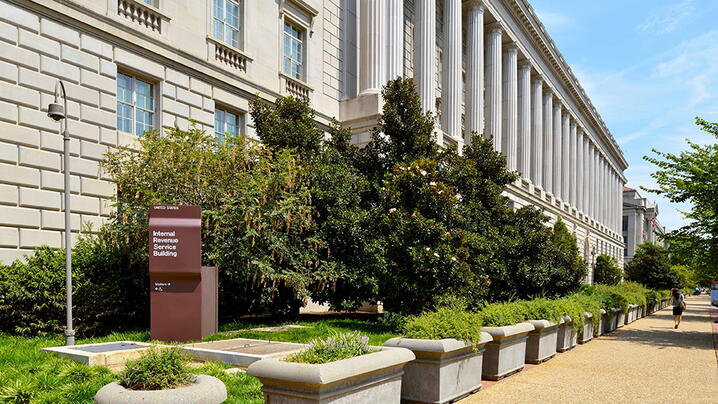
Sponsored content powered by Euna Solutions
A government's budget is its most important, consequential document. Not only does it determine where revenues get allocated, but it also defines what gets prioritized and accomplished for the communities served.
As community needs evolve, local governments will have to break from yesterday’s outdated budgeting methods and rethink their approach in order to successfully achieve positive outcomes.
But how can agencies accomplish this? Below, we'll explore how local governments can successfully achieve a modernized budget.
What Modernized Budgeting Isn’t
For local governments looking to successfully achieve budgeting processes that benefit both their agency and the communities they serve, it’s first necessary to understand what methods and factors aren’t working.
Technology has dramatically changed in the past two decades, and organizations looking to revolutionize their budgeting processes and outcomes need to break away from the status quo procedures that continue to hold governments back.
Here are three common hindrances to a local government’s budgeting success:
1. Lack of transparency
Just because a government shares data doesn’t mean it’s furthering public understanding. Providing unclear and complex budget information and data can diminish the public’s efforts to view agency spending and revenue collection, leading to decreased trust in budget planning, approvals, and execution.
2. Having a plan without an effective strategy
How often have you been a part of strategic planning—only for that plan to lie dormant in a PDF or mismanaged through ineffective spreadsheets? Local governments that work to execute their strategic vision will reap the benefits of better services and optimized resources. But if your strategic plan doesn’t come with an effective strategy, the end results are plans that are less likely to be fully implemented, little transparency for residents on how money is spent, insufficient progress made toward improved community outcomes, and very limited visibility into organizational progress and performance.
3. Using outdated budgeting processes
Every local government will have different budgeting processes and workflows that can work well enough when best practices are in place.
Unfortunately, most agencies continue using manual budgeting, creating processes riddled with inefficiencies and poor security that waste time and resources.
Keeping complacent with outdated budgeting processes will only impede an agency’s funding goals and positive outcomes for their communities.
What Modernized Budgeting Is
Local governments need modernized solutions capable of streamlining their processes while allowing for efficient multi-year budgeting and personnel planning.
Organizations looking to transition to modernized budgeting need to first look at what isn’t working for their agency and communities, then factor in what works best.
Here are three qualities of a successful budgeting process:
1. Priority-Based Budgeting
Unlike traditional line-item budgets that base new financial strategies on past decisions—regardless of their continued relevance or success—taking a priority-based approach to prepare and implement your budget puts current community needs and requirements front and center.
2. Greater Transparency
Transparency is critical to building trust within the community. Financial transparency tools can allow residents to interact with their government’s financial information and foster a greater understanding of budgeting decisions.
3. Public Engagement
When it comes to budgeting processes, the public's expectations of transparency, accessible data, and participation are ever-growing. Public engagement is most effective when governments establish a two-way, interactive, and fact-based conversation with residents.
How to Achieve Modernized Budgeting
Local governments that are ready to modernize their budgeting processes need to look no further than cloud-based budgeting software.
Implementing the right cloud-based solution gives local governments the tools necessary to elevate entire budget workflows that allow for transparent, collaborative, data-driven decisions that support and prioritize community outcomes.
Questica, a Euna Solutions brand, offers a suite of cloud-based software that enables data-driven budgeting, decision-making, and scenario planning, while increasing data accuracy, transparency, and stakeholder trust.
If you’re ready to rethink your local government’s financial planning, download our whitepaper, created in partnership with Balancing Act and Envisio, to discover an integrated, iterative, and transparent budgeting process that will future-proof your agency’s financial future.
New, Reduced Membership Dues
A new, reduced dues rate is available for CAOs/ACAOs, along with additional discounts for those in smaller communities, has been implemented. Learn more and be sure to join or renew today!

